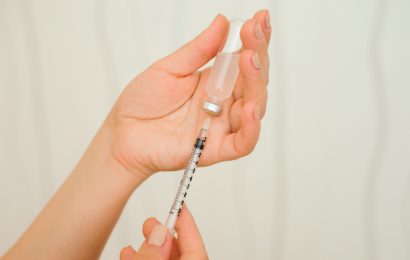A small study from the University of Chicago suggests that diet and exercise may not be the only factors in weight loss: Sleep, or rather, lack of sleep, appears to play an important role in hunger and fat loss.
Researchers randomly assigned 10 overweight, nonsmoking adults with an average age of 41 to either 14 days of calorie restriction and 8 1/2 hours of sleep a night or to 14 days of calorie restriction and 5 1/2 hours of sleep a night. (All participants were assigned to the alternate group in the second phase of the study.) During their waking hours, participants were sedentary and either did office work or engaged in leisure activities.
The results showed that the shortened sleep time reduced the amount of weight lost as fat by 55%: People sleeping 8 1/2 hours lost 1.4 kilograms (roughly 3.1 pounds), while those sleeping 5 1/2 hours lost only 0.6 kilograms (approximately 1.3 pounds). Additionally, the short sleep time increased the amount of fat-free body mass that was lost. The shortened sleep duration also resulted in an increase in hunger, lower resting metabolic rate, and heightened concentrations of ghrelin (an appetite-stimulating hormone) in the blood.
According to senior study author Plamen Penev, MD, PhD, “Among other hormonal effects, we found that sleep restriction caused an increase in ghrelin levels in the blood. Ghrelin is a hormone that has been shown to reduce energy expenditure, stimulate hunger and food intake, promote retention of fat, and increase glucose production in the body. This could explain why sleep-deprived participants also reported feeling hungrier during the study.”
In an accompanying editorial, Shahrad Taheri, MBBS, PhD, and Emmanuel Mignot, MD, PhD, noted that the study was small and included only people without health conditions, and therefore might not apply to people who do have health conditions. However, they agreed that getting adequate sleep is potentially an important factor in weight loss and in the future could be suggested along with diet and exercise as a way to maintain a healthy weight.
Aside from its effects on hunger, inadequate sleep is known to be associated with diabetes in a number of ways. Not getting enough sleep can decrease glucose tolerance and stimulate production of the stress hormone cortisol. Additionally, people who have sleep apnea are more than twice as likely as those who don’t to have diabetes, and 50% of men with Type 2 diabetes have sleep apnea. A recent study has also found that sleeping fewer than six hours a night may triple a person’s risk of developing incident-impaired fasting glucose (IFG), a condition that leads to Type 2 diabetes and heart disease.
To learn more about the research, read the article “Recommended Lifestyle Changes Should Include Enough Sleep, Say Researchers” or see the study’s abstract in the Annals of Internal Medicine. And for tips on getting a good night’s sleep, check out this article by nurse David Spero.




